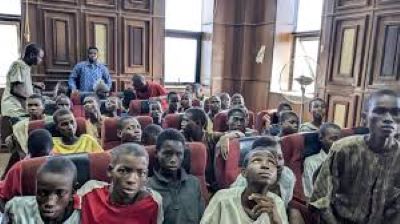The Abia State Government says it will train at least 250 therapists across its 17 local government areas to support children with intellectual and learning disabilities.
Chairman of the Abia State Commission for the Welfare of Disabled Persons, Mr. David Anyaele, disclosed this on Friday at a sensitisation workshop for stakeholders and caregivers in Umuahia.
The workshop brought together government agencies, teachers, health workers, parents, and caregivers to discuss the role of stakeholders in promoting inclusive education, healthcare, and community participation for children with special needs.
Anyaele explained that the therapists would help identify affected children and their families, addressing challenges that hinder equal participation in school, social life, and society at large.
He described the sensitisation programme as a foundational step, saying teachers and stakeholders must first understand their roles before therapists begin direct engagement in classrooms and communities.
According to him, the initiative seeks to broaden stakeholders’ understanding of intellectual disabilities and encourage the use of local opportunities to support children within their communities.
He reaffirmed the state government’s commitment to empowering persons with disabilities, promoting their rights and dignity, and ensuring inclusive access to education and healthcare.
“It is our hope that the investments by Governor Alex Otti in education and healthcare will be inclusive,” Anyaele said, stressing that equal access was key to sustainable development.
He noted that the sensitisation, the first of its kind in the state, would be extended to all local government areas to deepen community engagement.
Guest lecturer Mrs. Nnenna Osu, a magistrate and founder of Brain Activate Initiative, emphasised the importance of early intervention once signs of intellectual or learning disabilities are noticed. She urged collaboration with professionals and support networks to help children live with independence and dignity.
She highlighted that globally, 2–3 per cent of children have intellectual disabilities, while about 15 per cent experience some form of learning disability.
Special Assistant to the Governor on Arts and Culture, Mrs. Matilda Anyamaele, commended the initiative and called for its extension to the private sector. She also advocated for the establishment of special schools to provide personalised support for affected children.
In an interview, Rev. Sr. Getrude Ukanwoko of St. Vincent De Paul Centre for Persons with Disabilities, Umuahia, described the session as “highly educational and necessary,” noting that many children with disabilities are often misunderstood, mistreated, and unfairly nicknamed.


